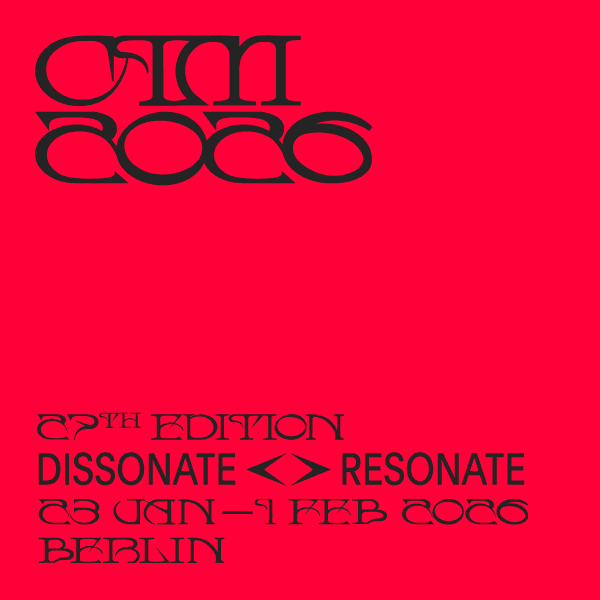
From Darkness to Magic: Warren Ellis and the Journey Toward the Light
»I’ve never felt better.«
Warren Ellis is in top form. From the moment I walk into the backstage room at Bremen Teater, the Australian bundle of energy is intensely present—constantly talking, eyes shining, his body language hyperactive. Along with his characteristic massive beard and sharp suit, he’s wearing rings and bracelets, and often waves his arms so enthusiastically that the jingling of jewelry makes it sound like he’s playing a tambourine.
»It’s not about some fucking mediocre rock star who got involved with an animal sanctuary – it’s about my family, about trust, about love«
Ellis is in Copenhagen to promote the film Ellis Park, which premiered at CPH:DOX and is currently touring film festivals around the world. While Ellis is best known as a musician – Nick Cave’s closest collaborator in The Bad Seeds and as part of the instrumental trio Dirty Three, which last year released its first album in 12 years, Love Changes Everything – Ellis Park shows him in a new light. Together with animal activist Femke den Haas, he has created a wildlife sanctuary deep in the Sumatran jungle, where they rescue and rehabilitate abused animals. Ellis has always loved animals, he says, mentioning the two dogs and four cats he has at home, but this is something else entirely: »It felt like being part of something much bigger than myself.«

Several documentaries about Nick Cave have been made over the years, in which Ellis has also played key roles – 20,000 Days on Earth, One More Time With Feeling, and This Much I Know to Be True are all excellent. But Ellis Park focuses entirely on Warren Ellis – not just his animal sanctuary, but also his private life in a way we’ve never seen before. In addition to returning to his childhood homeland and improvising the film’s music in the studio, we follow him on a visit to his parents, who are both seriously ill at the time. A deeply emotional experience for him, both during filming and now that the film is out.
»The film is really important to me. It’s not about some fucking mediocre rock star who got involved with an animal sanctuary – it’s about my family, about trust, about love. In the film, we go home to my parents, and it’s the last week they were together. My mom had Alzheimer’s and didn’t know who I was, and my dad had a tumor on his face and actually died while we were making the film. At the very first screening in Australia, I sat in the theater watching it, and that was a big mistake. I couldn’t talk afterwards – I was completely shaken.«
»I was completely done – crawling around a room eating peanut butter, not showering, and spent five months with suicidal thoughts«
At the CPH:DOX screening, Ellis stays backstage during the film but is bursting with energy when he enters the stage afterward and plays on his beloved violin to a very enthusiastic audience. The man and the music pulse with life. Thankfully, he has rediscovered the spark that had died out completely when Ellis Park was first finished.
»When I finished filming the documentary, it broke me. I had a hard, hard, hard crash. I fell into a black hole. I was completely done – crawling around a room eating peanut butter, not showering, and spent five months with suicidal thoughts. I got back with the help of a psychiatrist, antidepressants, and most of all, a new girlfriend.«
»I’ve been on antidepressants for two years now, and they’ve really changed my view on life. They’ve changed where I feel I belong. I’ve had anxiety most of my life. It might not be obvious when you see how I act and how much I do, but I’m always trying to keep working just to function.«
When He Found His Own Sound
Creatively speaking, Warren Ellis hasn’t exactly slowed down in recent years. He produces a steady stream of soundtracks and just composed the score for the Brazilian film I’m Still Here, which won Best International Feature at this year’s Oscars. Together with Nick Cave & The Bad Seeds, he released the album Wild God last year and went on a world tour that included two acclaimed concerts at Copenhagen’s Royal Arena. As if that weren’t enough, he debuted as an author in 2021 with the book Nina Simone’s Gum – part memoir, part autobiography, part philosophical-musical manifesto. The book centers around a piece of chewing gum Simone had used during a concert Ellis attended – gum he kept and carried with him ever since, treating it as a sacred totem. It was even displayed in a gold case at the Stranger Than Kindness exhibition at the Royal Library in Copenhagen in 2021.

»When I wrote the book, I had to just be myself. That was the rule for everything I wrote: it had to be honest. What I’m trying to say with the book is that imagination is what allows us to do things. And it really doesn’t matter what inspires you – it could be a piece of chewing gum. But the effect is magical.«
»The accidents are always the best. Anytime I think I’ve got a great idea, it ends up disappointing«
Looking back on his recent creative work, Ellis describes 2015 as a turning point. That was the year he composed his first solo soundtrack, for the French film Mustang, a sibling drama that premiered at Cannes and won him a César Award, France’s version of the Oscars.

»I’ve always had collaborators – Dirty Three, Nick, and so on. So doing the Mustang soundtrack on my own was a huge decision. It was the first time I did something entirely by myself. I was responsible for everything. It meant a lot and changed how I saw myself.«
Love for Mess and Serendipity
Film music, in general, has had a transformative impact on Ellis.
»When Nick and I made The Proposition 20 years ago, it was the first time I really went nuts in the studio. I had all these amps and loop machines. I’d talked to Bobby Gillespie about the production of Psychocandy by The Jesus and Mary Chain, about how they got that sound – every time you hear it, it rips your head off. He didn’t remember much but said there were three guitar layers they just kept turning up and down. I couldn’t get that out of my head, so I thought: why not use three different amps – one big, one small, and one direct line? We recorded everything multiple times through different amps, new overtones emerged, we turned things up and down at random – it created these atmospheric shifts. It was a revelation. That was the beginning.«
»The accidents are always the best. Anytime I think I’ve got a great idea, it ends up disappointing. The good ideas are the ones you don’t see coming. I love messing around with instruments I don’t really know, and when I don’t understand what I’m doing with my loop machines or synths, that’s when I start discovering things.«
»As a kid, I played classical violin, I loved rock’n’roll, but I never connected making music with enjoying it«
»I often end up in this tangle of cables – twenty or thirty different panels, ten or fifteen instruments – I just grab stuff and plug things in. It’s total chaos. I don’t take photos of knob settings, so half the time I don’t know what the sound is. I’ve had many moments where I’ve left something, come back the next day, flipped a switch, and suddenly an idea appears – and I have no clue how it happened.«
»If I’m working in a room and suddenly everything in the room seems to change inside me – even if it’s just a couple of notes – then I know something good is happening. That’s not something I always knew. That’s something I can talk about now – now that I’ve got some history. That’s a good thing about getting older.«

New Peace After Decades of Panic
Ellis clearly has a deep drive to keep experimenting. The eternal explorer is unafraid of surprising collaborator choices. He raves about a French mastering engineer who’s worked with Daft Punk and whom he hopes to work with on upcoming soundtracks. When I ask about The Flaming Lips producer Dave Fridmann, who mixed Wild God, he lights up. He explains it was Cave’s choice – »Nick loves The Flaming Lips records« – but he loves how Fridmann subtly and elegantly expanded The Bad Seeds’ sound. When I mention the album’s use of reverb, Ellis smiles and appreciates that such details are noticed by an attentive listener.
»It’s only recently I’ve realized I’ve built a pretty solid foundation of work that allows me to take care of my family«
»I love making music. What got me into music was that I enjoyed it. As a kid, I played classical violin, I loved rock’n’roll, but I never connected making music with enjoying it. I always thought I’d just be a music fan. For as long as I can remember, listening to music was my way of escaping the world. There weren’t many escape routes as a child – TV, music, films. You couldn’t just watch a movie whenever you wanted – I lived in a small town. Music was a huge focus for me, and a precious thing to have. There are records where I know every inch of the cover, every sonic detail. Somehow, I ended up making music in my mid-20s. I was never driven by money – I just loved to play.«
»My panic – the panic I’ve lived with for 30 years – that everything would stop, that it would all dry up, that I wouldn’t be able to work or that nothing new would come in – has only eased in the past year or two. It’s only recently I’ve realized I’ve built a pretty solid foundation of work that allows me to take care of my family. And that’s the greatest achievement I can think of.«
»I just scored a nature documentary – 40 minutes of music in three days. I think it’s the best score I’ve ever done. I’m 60, and I’m busier than I’ve ever been – but I also feel like I’m doing my best work right now.«
English translation: Andreo Michaelo Mielczarek. Proofreading: Seb Doubinsky

